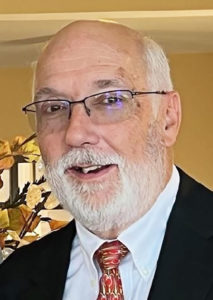Focal Passage: Genesis 35:1-15
 Leaving is never easy. Leaving family after a wonderful holiday season is never easy but is tempered with the knowledge that there will be another time. Leaving a job and friends is never easy even for a new opportunity but again tempered with the knowledge that some friendships will survive time and distance.
Leaving is never easy. Leaving family after a wonderful holiday season is never easy but is tempered with the knowledge that there will be another time. Leaving a job and friends is never easy even for a new opportunity but again tempered with the knowledge that some friendships will survive time and distance.
However, sometimes leaving means never returning. A bad job. A bad break-up. A bad mistake. Leaving means turning away from what was and starting new someplace else.
Being forced to leave Shechum after some horrible events, Jacob returned to Bethel, a place he had been once before. God led them away. Jacob’s daughter had been raped. Two of Jacob’s sons found revenge. Now they left Shechum.
At Bethel, God had them “to purify” themselves. This ceremonial cleansing would allow them, after such a heinous act, to be allowed to worship again. However, this “purifying” was more than ceremonial.
Jacob called for all the “false gods” to be brought to him and then he would bury them. And forgotten them. Not only was Jacob leaving Shechum, but he and his family were leaving any semblance of false gods behind them. This “turning away” from false gods, or renunciation, demanded that this leaving was imperative. It was leaving an old way of life to begin something new.
When Christians are baptized, baptism is rooted in purification. Buried to sin, or renouncing sin, is the beginning of something new. I Peter 2:1 says to put away all malice and guile. James 1:21 says to put away all filthiness. Hebrews 12:1 says lay aside every weight and sin. As Christians, following Jacob, are called to “purify” themselves, to remove all that is unholy from their life. To leave and turn away from our unrighteous becomes the first step in following after Jesus.
Once this purification has taken place, changes occurred. First, came new clothes. Taking off something and then putting on something. In Ephesians 4:22-24, Paul demanded that Christians put off your old nature and then put on your new nature. This exchange of clothes pointed out that something new had begun.
Second, came a new name. Again. During Jacob’s first time to Bethel, God had changed his name and again using his same new name — Israel — Jacob received his name again. Jacob’s life in Scripture began and then came to the beginning of the end with his new name. Jacob, under the care of God, became a new person with a new name. As Christians, once we leave our life of sin and purify ourselves, then we, also, receive a new name — the adopted sons and daughters of God.
Third, Bethel was the place Jacob met God and where God blessed with him with the covenant blessing given to both his father and grandfather. Bethel was both a holy place as it was a place of worship and a place of promise where Jacob received his blessing. This promise points toward the future — a promise of land, a nation, and a people. Bethel represented hope.
As Christians, we receive the gift of promise — the presence of the Holy Spirit, of life abundance and of life eternal. Jacob was purified by leaving the gods of the land and as a result, he received new cloths, a new name and a renewed promise. B&R

